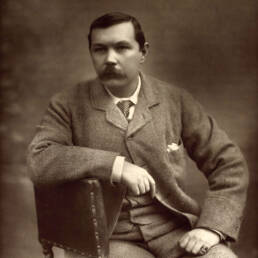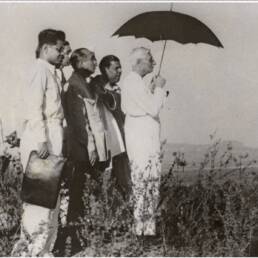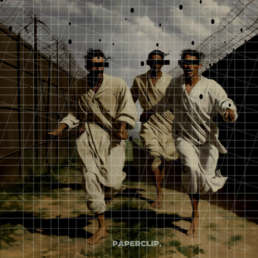On the evening of December 3, 1971, Pakistani Air Force fighters attacked Indian airfields sparking off the 1971 Liberation War. Before daybreak, India launched a retaliatory attack. The first blow was by a group of Muktijoddhas
In March, 1971, a brutal crackdown across East Pakistan was started by the Yahya Khan administration. One outcome was the formation of the Mukti Bahini (Freedom Force) – a guerilla fighting force comprising Bengalis from the armed forces, police as well as civilians.
Initially localised and severely disorganised, the Mukti Bahini gradually took the shape of a more formal fighting force with support from India. Among its ranks were Bengali airmen – from PAF and Pakistan Airlines (PIA) as well. Senior most among them was Group Captain AK Khandoker.
Khandoker wished to have an air wing of the Mukti Bahini. However, the proposal did not materialise as India was unable to commit aircraft and other logistical support. Khandoker was disheartened but did not give up on his dream.
In August, 1971, Air Chief Marshal PC Lal, Chief of IAF, visited Calcutta and met Khandoker for dinner. The Bengali officer brought up the topic and found earnest support from the IAF Chief’s better half. The Chief promised Khandoker he would try his best to get a Bangladeshi air wing rolling.
Air Chief Marshal Lal kept his promise. Soon, GoI sanctioned the setting up of the Mukti Bahini Air Force. Over the coming weeks, Group Captain Khandoker was a busy man, recruiting men for his dream project. Dimapur in present day Nagaland was selected as the training base.
It was in Dimapur that Khandoker famously addressed the first batch of Bangladeshi airmen on September 28, 1971 – a date still celebrated by the Bangladesh Air Force as their foundation day. The IAF seconded 3 aircraft: a DHC-3 Otter, a Douglas Dakota C47 and an Aloutte III helicopter on which the Bengalis started training.
Sq. Leader Sultan Ahmed, formerly of PAF, was anointed as the CO. On October 4, the unit was formally christened the Kilo Flight. Training began in earnest. Dimapur, a WWII airfield, suddenly became abuzz with activity.
By the end of November, it became clear that direct war was about to break out anytime between the two neighbours. On December 1, the pilots of Kilo Flight were transported to Jorhat. The Bengali airmen were keen for action. Having been first hand witnesses to the atrocities perpetrated by the west Pakistani forces, they were raring to payback.
On December 2, an 18 Rajput unit in Akhaura (East Pakistan) came under attack by PAF Sabres. A day later, PAF launched pre-emptive strikes on IAF bases in western India. The Indian PM, Mrs. Indira Gandhi reacted immediately, declaring war. The IAF was tasked to retaliate at the earliest.
The Kilo Flight was selected to land first strike. At 9.30 PM, the Otter, with its four man crew, took off for Chittagong. Almost at the same time, the Aloutte III, piloted by the CO Sultan Ahmed lifted off, to destination Narayanganj near Dacca.
The Otter fired its first shots at oil tanks in the harbour, the rockets exploding with full ferocity, followed by liberal machine gun fire. Despite AA fire now opening up, the Otter safely turned back and expended its remaining two rockets on a docked ship before starting its journey back “home.”
As the last two rockets zoomed off, the crew let off a blood curdling yell of “JOY BANGLA!”
Meanwhile, Sultan Ahmed’s Aloutte III also completed its mission safely without encountering any opposition. A fierce war had just begun that would end two weeks later, with the birth of the new nation of Bangladesh.
In the larger scheme of things, the two missions flown by Kilo Flight on the night of December 3, 1971 were not significant. However, they had a huge impact on the morale of the Bengali airmen and the larger Mukti Bahini. This would prove vital over the momentous events of the coming two weeks culminating with Pakistan’s surrender on the eastern front #OTD in 1971
Source:
The Indian Air Force in the 1971 Liberation War: EAGLES OVER BANGLADESH – by P.V.S Jagan Mohan and Samir Chopra




